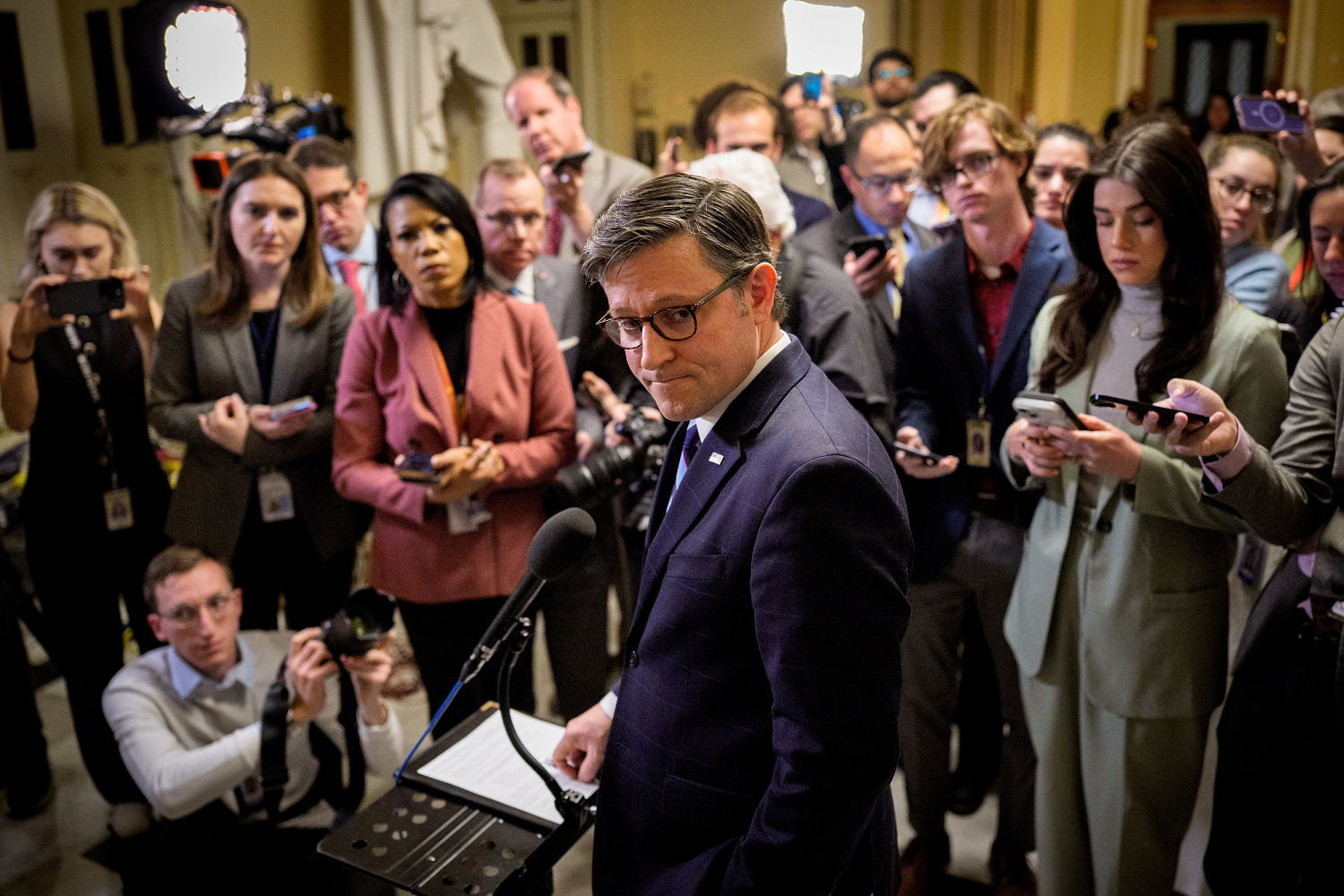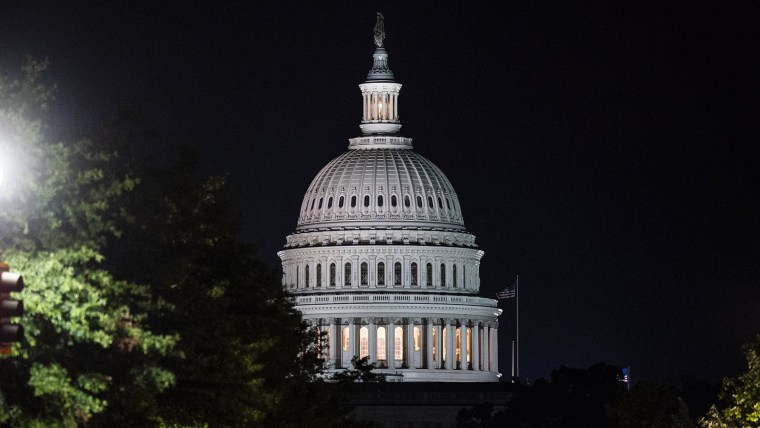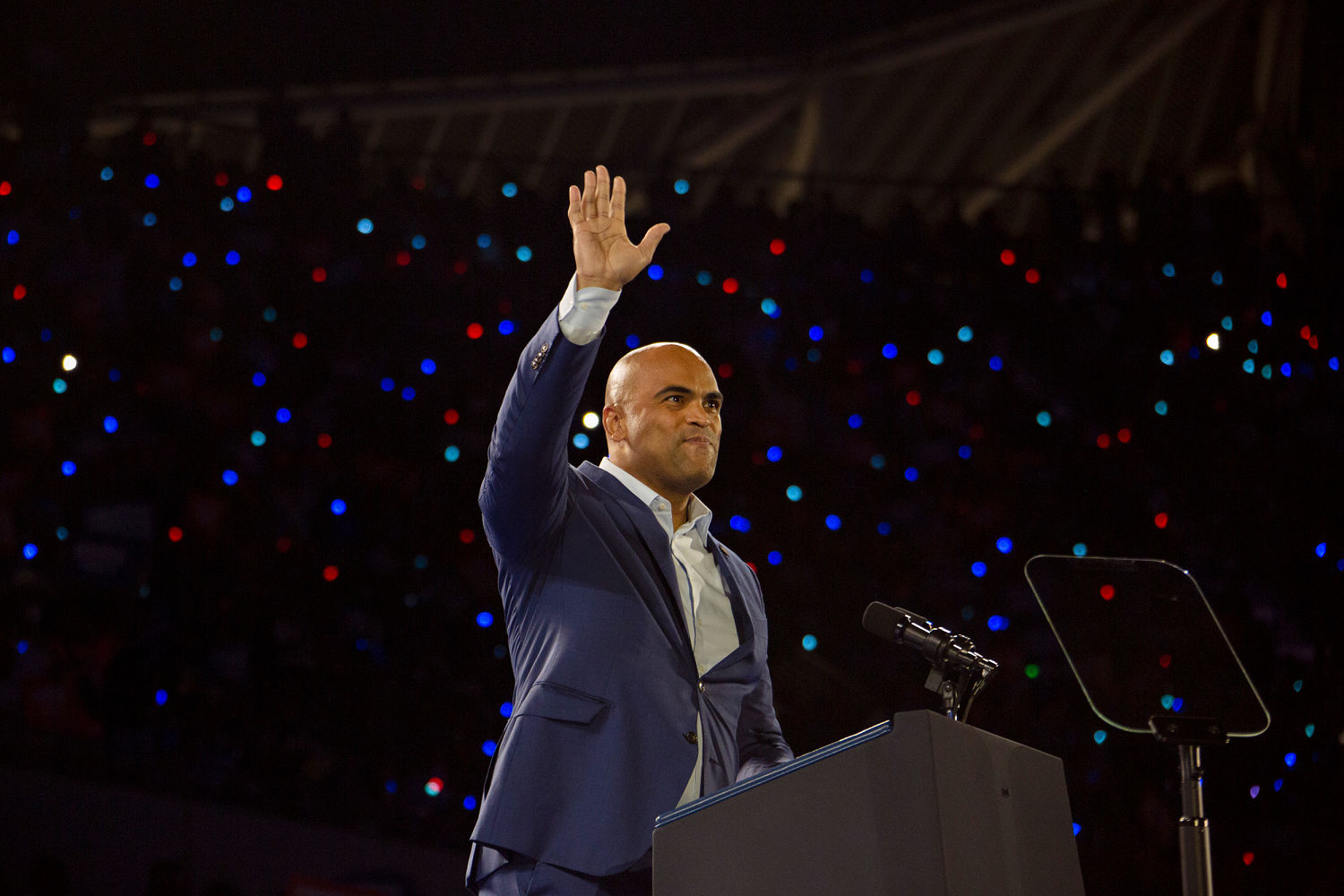5 policy issues Republicans are clashing over in a massive bill for Trump’s agenda


WASHINGTON — Congress returns from recess on Monday for a four-week dash to Memorial Day, during which Republican leaders hope to resolve critical questions about their sweeping bill to pass President Donald Trump’s agenda.
The GOP is aiming to craft legislation that includes trillions of dollars in tax cuts, hundreds of billions of dollars in new spending for immigration enforcement and the military, and a debt limit hike of up to $5 trillion.
First, Republicans will have to address a series of intraparty divisions to steer a bill through the House, where they have a slim majority. Then, they’ll have to navigate arcane budget rules to get it through the Senate, where Democrats will seek to disqualify certain provisions from the legislation.
Speaker Mike Johnson, R-La., said he expects the committees to roll out their slices of the package in the next four weeks, telling Fox News last week that the House is “pushing it very aggressively” to “get it done by Memorial Day.”
Here are five big policy issues that Republicans are clashing over.
How to cut Medicaid spending
Medicaid is the one major slice of the U.S. budget that Republicans have put on the table for cuts. They say the priority will be slashing waste, fraud and abuse, though the specifics remain unclear.
GOP lawmakers largely agree on imposing new work requirements for able-bodied adults to access Medicaid benefits, as well as tougher rules to require proof of U.S. citizenship and verify eligibility more often.
But those new standards and paperwork demands would only save a fraction of the $2 trillion in cuts that conservatives are demanding. Beyond that, there are significant policy divisions inside the party, particularly as Democrats have zeroed in on the potential pain of Medicaid cuts to rally opposition to the bill.
Some House Republicans are pushing to substantially slash federal funding for Medicaid and require states to pick up a larger share of the tab, a policy known as reducing the Federal Medical Assistance Percentage, or FMAP. Other Republicans oppose that idea, fearing their states won’t be able to afford the extra cost and will have to throw beneficiaries off Medicaid to balance the books.
Rep. Chip Roy, R-Texas, said his fellow Republicans like to point out that the main driver of deficits is “mandatory” spending on safety net programs, and it’s now time for them to put up or shut up.
“Guess what, boys? It’s game time. We’re here, and you’ve got mandatory spending sitting in front of you, and it’s Medicaid,” Roy told NBC News. “If they’re not going to vote for Medicaid reform, which is very much possible, and frankly, it’s our duty, then I want them to explain to me why they are for allowing the tax cuts to snap back in place. Because it’s the only math that will actually work. So anyone who is against Medicaid reform is for a tax increase.”
The scope of tax cuts
On taxes, the starting point for Republicans is to extend the major portions of the 2017 Trump tax cuts that expire at the end of this year. That is estimated to cost $4.6 trillion over a decade, according to the official scorekeeper in Congress, although GOP leaders want to use an alternative method to slap a lower sticker price on it.
Some Republicans floated a trial balloon on allowing the tax rate on upper earners to go up, which Trump and Johnson shot down last week. Other questions abound: What will come of business tax breaks and child tax credits in the measure?
And there’s more that Republicans are eyeing, including Trump’s campaign pledge to nix taxes on tips and potentially overtime pay. Such policies will have to be crafted with caution to prevent them from becoming a costly tax avoidance loophole, where employers could reclassify regular income as tips or overtime in order to pay the government less. Either way, it would raise the cost of the bill.
And will Republicans eliminate the “carried interest” tax break? It has been slammed by critics as a loophole to enrich wealthy investment managers. Private equity lobbyists are fighting to keep it alive, warning of economic harm if it’s undone. Trump, who largely preserved it in his first term, supports closing the carried interest break, a White House official said.
Overall, the official added, the administration has communicated to congressional Republicans that it is comfortable with at least a trillion dollars in spending cuts.
The ‘SALT’ deduction
A regional battle over the federal deduction for state and local taxes, commonly known as SALT, looms over the GOP effort. A group of House Republicans in high-tax states is insisting on raising the $10,000 limit their party imposed under the 2017 tax law.
These lawmakers, including Reps. Nick LaLota, R-N.Y., and Nicole Malliotakis, R-N.Y., vow to oppose a bill unless it meets their demands, making this a red-line issue for securing their votes. LaLota said the level must be more than $15,000 for individuals and $30,000 for couples, although he didn’t state his bottom line.
This creates a complicated problem: Most Republicans don’t want a bigger SALT deduction because they represent districts where it isn’t a big issue. But without the votes of the Republicans from New York and California, the GOP won’t have enough support to get it through the House. Among Senate Republicans, there is virtually no interest in expanding SALT. And doing so could be costly, taking away funds that Republicans could spend on other tax breaks.
“Every dollar spent on SALT is a dollar not spent on sugar,” said Jon Traub, a former top House Republican aide who is now a managing principal at Deloitte overseeing tax issues.
Clean energy rollbacks
Republicans want to find some savings by undoing up to hundreds of billions of dollars in clean energy funding under the Inflation Reduction Act, which Democrats passed along party lines in 2022. But they face a problem: A large share of that money benefits districts and states represented by Republicans. How much of a hit to their own constituents are members willing to accept in service of a broader goal of passing Trump’s agenda?
And the clean energy money includes credits for consumers to reduce the cost of energy-efficient cars and home appliances.
In the abstract, rolling back President Joe Biden’s partisan law is appealing to Republicans. But as the prospective pain hits home, some GOP lawmakers are already insisting on avoiding cuts to clean energy funding that benefits their districts.
New military spending
In the concurrent budget blueprints, the House is eyeing a $100 billion boost to the Pentagon while the Senate wants a bigger number of $150 billion. It’s an unusual move by Republicans to massively expand military spending outside the normally bipartisan appropriations process or the National Defense Authorization Act.
But while proponents call it necessary to modernize military equipment, the defense spending hike goes against Trump’s calls to shrink the size of government. It also comes as some Republicans fault the Pentagon for failing to pass an independent audit for years.
And some in the GOP are wary of it. Rep. Tim Burchett, R-Tenn., for instance, has said he doesn’t believe the “war pimps” at the Pentagon need any more money.




